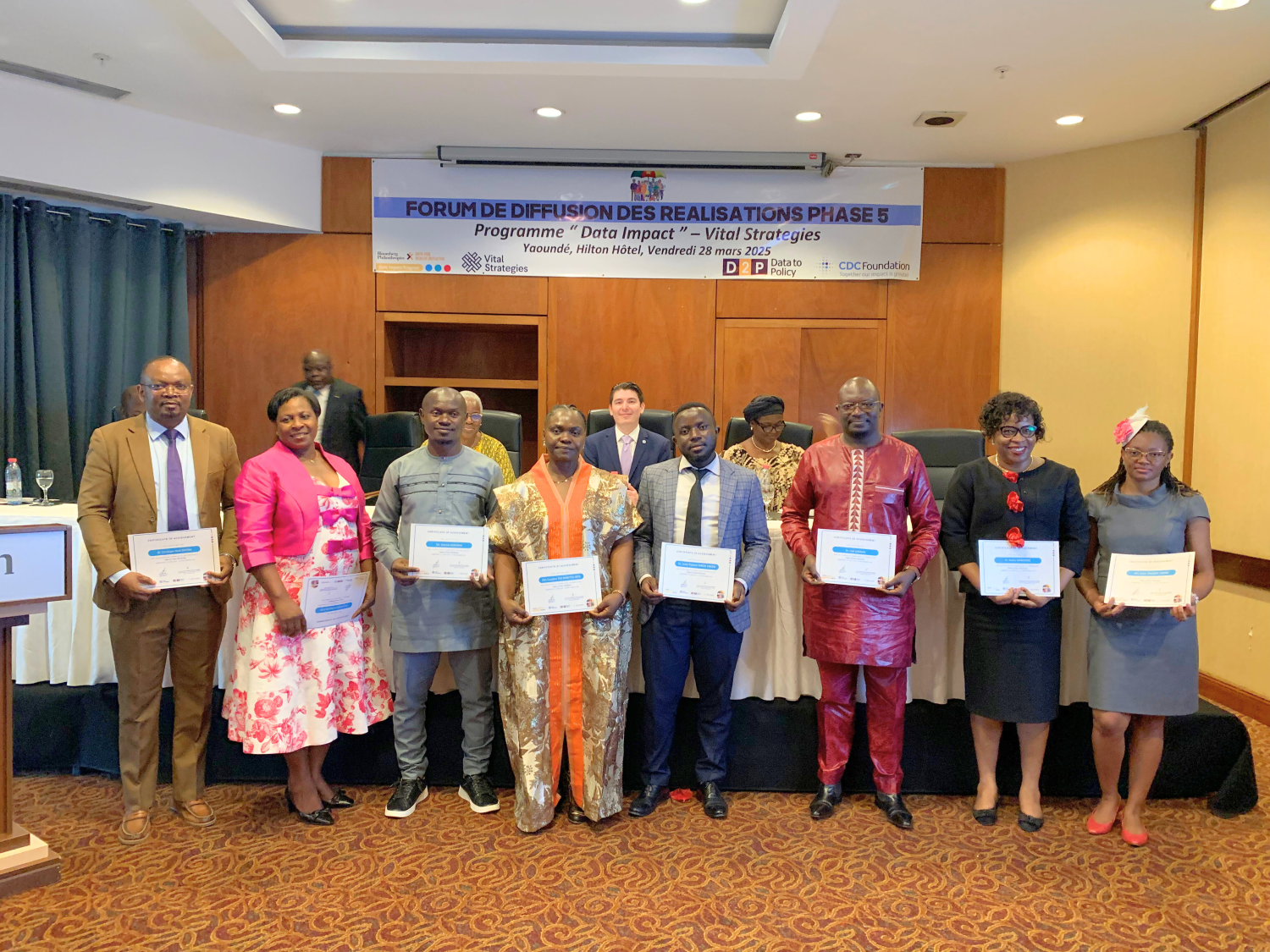September 2025
Cancer is an emerging public health priority in Cameroon, yet access to screening services has remained fragmented and limited, with no formal guidance to health facilities and medical practitioners on how to provide screening services. According to estimates by the Global Cancer Observatory (GLOBOCAN), in 2022, breast cancer was the most frequently diagnosed cancer in Cameroon, with 4,207 cases, and the leading cause of cancer-related deaths, with 2,285 deaths. This burden is compounded by the fact that breast cancer is often detected at late stages, leading to high mortality and reduced chances of survival.
During the Data to Policy (D2P) program in Cameroon in 2024, one of the participating teams produced a policy brief on breast cancer, recommending a combined strategy of increasing community awareness as well as scaling up screening services for breast cancer. The team developed a plan to move their recommendations forward during Data Impact’s cross-country Policy Advancement Workshop in November 2024, and by February 2025, Cameroon’s National Cancer Control Committee had assigned staff to begin developing the country’s first national breast cancer screening guideline. Between March and July 2025, drafting of the guidelines took place, including validation and review meetings with government and non-government stakeholders, which led to the inclusion of practical job aids for clinicians to help them increase screening implementation. In August 2025, Ministry of Health (MINSANTE) rolled out targeted outreach at subnational levels to ensure health workers and communities across Cameroon benefit from the new guidelines.
Alongside the technical work, MINSANTE commissioned a documentary to raise awareness among at-risk women about early detection of breast cancer, ensuring that policy change would be paired with public engagement. The accompanying testimonial video - featuring survivors, health officials, and experts - was used during Pink October 2025 to mobilize public support for early screening. With this, Cameroon is taking steps to equip its health system with the tools to detect breast cancer earlier, treat it more effectively, and reduce preventable deaths. The work also demonstrates how evidence generated through policy briefs is translated directly into government-led guidelines, reinforcing Cameroon’s National Cancer Control Strategy and aligning with global commitments to strengthen noncommunicable disease prevention.






